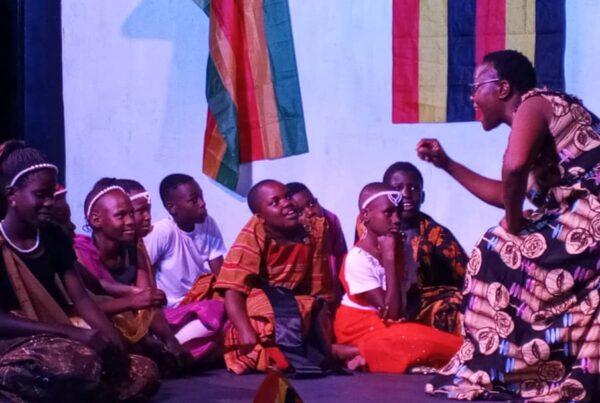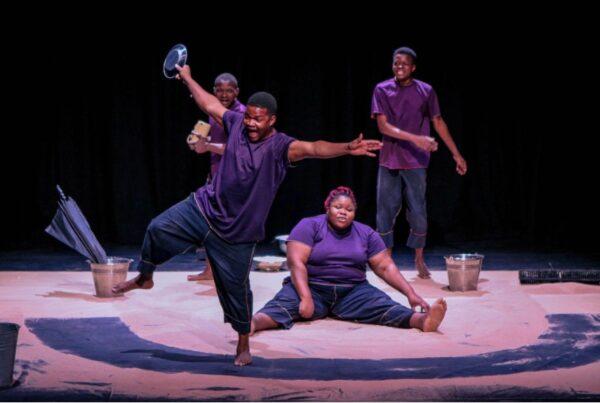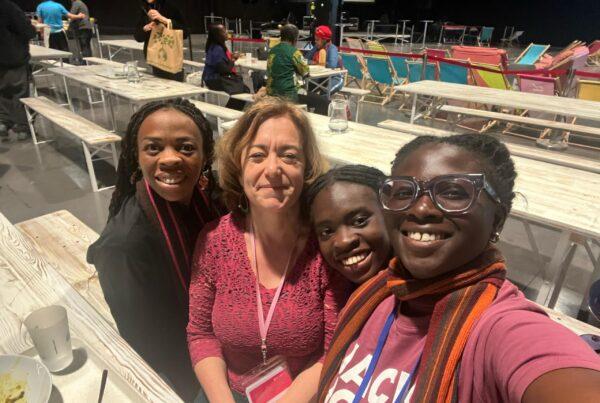By Ekua Ekumah
The significance of language was brought into sharp focus at the recently concluded ASSITEJ International’s Bright Generations Artistic Gathering. With over 800 artists, educators and researchers working with children and young people from across the globe, this landmark event underscored language as both a creative and practical concern. One of its central pillars—historical legacies and new challenges—demanded a critical engagement with the continued dominance of colonial languages and urged us to reimagine Africa’s linguistic diversity as a unifying rather than divisive force.
Throughout the event in Marseille, participants experienced moments of linguistic vulnerability: navigating performances in unfamiliar languages, relying on subtitles or sign language, and interpreting non-verbal productions. Even outside performance spaces, daily interactions—asking for directions, participating in workshops, or simply connecting over meals—were laced with linguistic negotiation. These moments served as sharp reminders of how language mediates our access, shapes our experiences, and often defines our belonging.
In this context, ACYTA (African Children and Youth Theatre Arena) hosted a session titled Africa Connect, drawing all 21 African delegates and many international participants. Language quickly emerged as a core theme: Which language allows us to communicate inclusively? How do we navigate differences without flattening meaning or emotional texture? The session reinforced the powerful presence of colonial legacies in how we speak, listen, and share. While English, French, and Portuguese offer a certain range and accessibility, they can also be limiting—especially when they silence or exclude African voices that are rooted in different linguistic worldviews.
ACYTA’s position is unequivocal—language must be a bridge, not a wall. This idea resonated deeply in the meeting leading to the 2025 Marseille Statement: Embracing UBUNTU, which calls on theatre-makers and educators to transcend linguistic borders and move towards a more connected and intentional practice.
Operating across a continent as linguistically rich as Africa, ACYTA understands that language is more than just a tool. It is a powerful marker of identity, and a medium through which culture, meaning, and philosophy flow. This multilingualism is not a hurdle to overcome—it is a foundation to build on, a resource to celebrate. Theatre, with its arsenal of physical expression—movement, rhythm, image, silence—offers creative entry points for navigating and translating across linguistic divides.
This conversation sits within a longer intellectual tradition, most notably the debate between Ngũgĩ wa Thiong’o and Chinua Achebe around whether African literature should be written in colonial or indigenous languages. For theatre practitioners working with young audiences, this question remains particularly urgent: Should we perform in the languages that children hear at home, or in the languages sanctioned by institutions? Who gets to decide which language is worthy of the stage?
ACYTA challenges us to rethink how we communicate clearly and intentionally. What informs what we do? Why do we do it? The answer must always come back to the children and young people who are at the centre of our work. It is for them that we must rise above politics and ego, and push towards collaboration, cultural pride, and cross-border engagement.
In all this, ACYTA insists: language should never be a reason we fail to connect.






